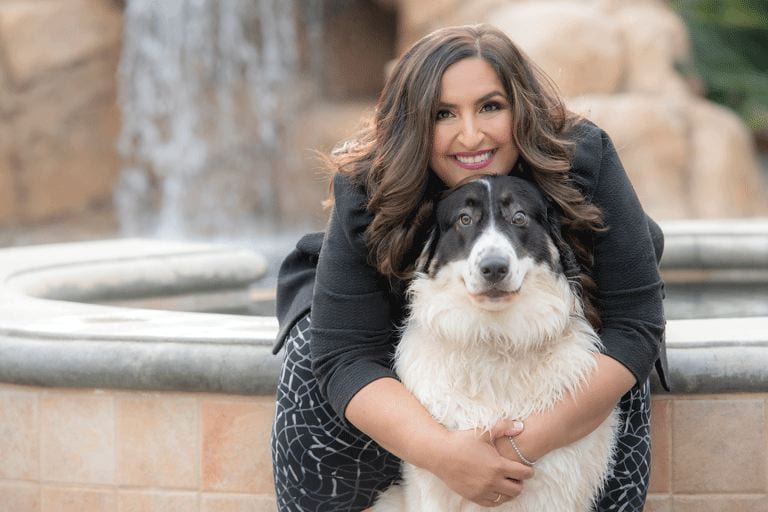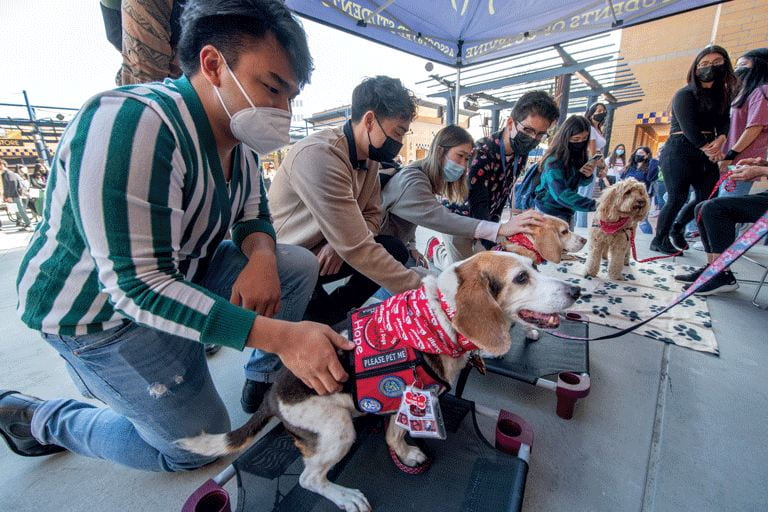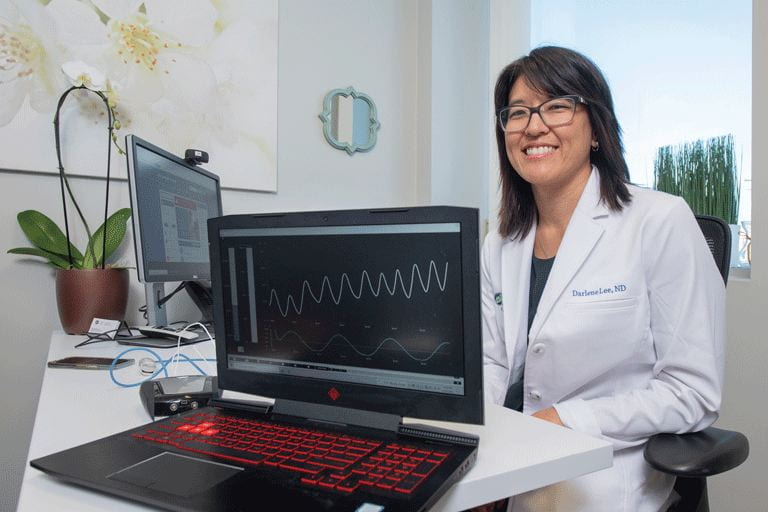Healers' Health
Three questions with Dr. Anju Hurria, UCI’s inaugural Samueli Wellness Officer
The admonition “Physician, heal thyself” is at least 2,000 years old, but it’s one that the medical profession still grapples with, according to Dr. Anju Hurria, who in July became the inaugural wellness officer at UCI’s Susan Samueli Integrative Health Institute.
The role essentially is that of organizational troubleshooter and advocate for the mental and physical health of more than 10,000 faculty and staff in UCI’s Susan & Henry Samueli College of Health Sciences, which includes the schools of medicine, nursing, pharmacy & pharmaceutical sciences and the Program in Public Health as well as SSIHI.
Though wellness officers are becoming more common in the corporate world, Hurria says, there is nowhere they’re more needed than in the medical profession, where rates of job burnout, depression and even suicide far outstrip those in other occupations.
Her new job is one she’s prepared for, having previously directed UCI’s medical student wellness program and, subsequently, its faculty wellness program (a role she continues now under the Samueli Institute).
Born in Brooklyn, New York, and raised in Orange County, Hurria realized while majoring in American literature at USC that psychiatry might better suit her passion for people’s stories and their outcomes. After earning an M.D. at the State University of New York in Syracuse, she served an adult psychiatry residency and child psychiatry fellowship at UC San Diego and was an attending physician there.
Hurria transferred in 2013 to UCI’s Department of Psychiatry & Human Behavior, where she split her time between organizational wellness and practicing child psychiatry. She and her surgeon husband, Adnan Din (who completed his medical residency at UCI in 2003), live on a ranch on the outskirts of Orange County where they care for 27 animals, many of them rescues.
Can you explain what a wellness officer does and why it’s important that UCI has one serving its medical community?
The idea of a wellness officer is to help create a work culture where people thrive and feel that their mental and physical well-being is supported. Research shows that when you have a well culture in the medical profession, not only are employees happier and healthier, but it leads to better patient care. If you have physicians and nurses who don’t feel burned out, they’re able to provide more cautious and thoughtful care to patients.
It’s important to debunk this idea that healthcare providers are perfect and to remind them that we’re all susceptible to mental and physical health issues – that you are your own patient first and need to take care of yourself.
From students to medical professionals, we’ve found it’s important to have peer mentor programs, where they can talk with people who have experienced and survived what they’re going through, whether it’s depression, failing a test or losing a patient. Research shows how important it is for people to feel they have some autonomy over their work/life schedule. Even controlling 20 percent of their workday and workflow – where they get to focus on things that have meaning to them and not feel like a cog in a wheel – can make all the difference.
“It’s important to debunk this idea that healthcare providers are perfect and to remind them that we’re all susceptible to mental and physical health issues – that you are your own patient first and need to take care of yourself.”
Addressing work inefficiency, a major driver of burnout and people leaving their jobs, is also key. People want to feel that their work matters and that they’re utilized at their highest level of training. That’s a reason why listening sessions are important, because it’s the people working these jobs who know where the issues are. So those are some of the things to watch out for.
Speaking of stress and burnout, were you worried about adding the wellness officer role to your workload?
Actually, this is really my dream come true. I spent years treating medical students and residents and being in the medical center, seeing on an individual level the issues people struggle with. To be able to address solutions from a systems perspective is such an exciting opportunity, especially being involved with the Susan Samueli Integrative Health Institute.
It isn’t like starting from the ground up. There are many wonderful resources already in place at UCI, so much of what I’m initially doing is bringing those resources together and finding areas where they can be used to improve things. And integrative health brings all these other approaches to consider. There isn’t any one idea for well-being. For some, exercise may be the hallmark for their mental and physical health. For others, it might be their spirituality or their connection to their community or family that makes them feel well.
What would you recommend that people do to enhance their well-being?
People have told me, “I have 12-hour shifts in the hospital when I never see the sun.” We come from nature and need opportunities to connect with it. That doesn’t necessarily mean a day at the beach. Just leaving your desk for 10 minutes to walk, pet an animal or sit outside can be helpful. Exercise affects your mental health, so you should exercise even when your mood tells you it’s the last thing you want to do.
My years as a psychiatrist have made me feel strongly that loneliness is a disease. It’s important to actively find or cultivate your own community of people you feel you can talk to and rely on.
It’s also important that those in healthcare find their own purpose for getting up each day. The pandemic has made us rethink what it means to be an essential worker. Waking with the thought that you can do something productive for others is very beneficial to your mental health.
Lastly, my favorite word is “hope.” It’s even the name of my oldest dog. In my experience, everybody wants to feel able to improve their and their family’s lot in life. That hope is such a driver for wellness, and it’s important you work toward that – including landing yourself in an organization that’s looking for ways to better people’s lives.



